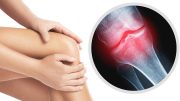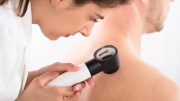
A study found that individuals with allergies such as hay fever, rhinitis, and atopic eczema, especially if they also have asthma, may have a lower risk of COVID-19 infection.
Older age, male sex, and other medical conditions not associated with heightened risk ….Unlike Asian ethnicity, obesity, overcrowding, socializing, and people-facing roles.
People with allergic conditions such as hay fever, rhinitis, and atopic eczema, may have a lower risk of COVID-19 infection, especially if they also have asthma, finds a large, population-based study of UK adults, published online in the respiratory journal Thorax.
And contrary to the findings of recent studies, older age, male sex, and other underlying conditions aren’t linked to a heightened risk of infection, the research indicates.
But Asian ethnicity, obesity, household overcrowding, socializing indoors with other households, and holding down a people-facing role other than in health and social care are all independently associated with a heightened risk of developing COVID-19, the findings show.
A growing body of evidence suggests that at least some risk factors for developing COVID-19 may differ from those which predispose to severe disease and the need for intensive care, say the researchers.
To explore this further and glean what contribution demographic, socioeconomic, lifestyle, diet, medical treatment, and underlying conditions might make to the risk of developing COVID-19, the researchers captured detailed information on potential risk factors for the infection among UK adults between May 2020 and February 2021.
All participants were asked to provide information on their age, household circumstances, job, lifestyle, weight, height, long-standing medical conditions, medication use, vaccination status, diet, and supplement intake when they joined the study and then again in subsequent months.
Out of 16,081 eligible people, 15,227 completed at least one subsequent monthly follow-up questionnaire 30 days or more after joining the study; and 14,348 completed the final questionnaire on or before 5 February 2021.
The average age of the participants was 59; 70% were women; and 95% identified their ethnic origin as white.
In all, 446 participants (almost 3%) had at least one episode of confirmed COVID-19 infection, as determined by swab (PCR or lateral flow) test during the study period, and 32 were admitted to hospital.
The researchers accounted for an array of potentially influential factors: age: sex: length of participation in the study: ethnicity: testing frequency: ethnicity; education; deprivation; household income; housing type; number of people per bedroom; schoolchildren at home; ownership of a pet dog; shielding; socializing with other households; visits to shops and other indoor public places; travel to work or study; frontline worker status; physical activity; alcohol intake; weight (BMI); asthma; allergies; use of immune suppressant drugs, inhaled corticosteroids, and bronchodilators; BCG vaccination status; fruit, vegetable, and salad intake; and use of nutritional supplements.
Certain factors consequently emerged as being independently associated with increased odds of developing COVID-19.
People of Asian/Asian British ethnicity were more than twice as likely to become infected as their white counterparts.
Similarly, household overcrowding; socializing with other households in the preceding week; number of visits to indoor public places; a people-facing role other than in health and social care; and overweight/obesity were all associated with a heightened risk.
And the greater the number of people sharing a household and the higher the number of visits made to indoor public places, the higher were the odds of becoming infected, the findings showed.
But atopic (triggered by allergens) disease, which includes eczema/dermatitis and hay fever/allergic rhinitis, was independently associated with 23% lower odds of developing the infection than it was in those without atopic disease or asthma.
And among those who had atopic disease and asthma, the risk was even lower: 38%. This association held true even after factoring in the use of steroid inhalers.
Taking drugs to dampen down the immune system response (immunosuppressants) was also associated with 53% lower odds of COVID-19 infection, although this may reflect greater shielding from infection by these patients, say the researchers.
But age, sex, other medical conditions, diet, and supplement use weren’t associated with infection risk.
This is an observational study, and as such, can’t establish cause. And the researchers acknowledge some limitations to their study.
These include no oversight of swab testing and reliance on the results of routine testing that will usually have been prompted by symptoms, so potentially missing those with symptomless infection.
Participants also volunteered themselves, so some ethnic minorities, particularly people of black, African, and Caribbean ethnicities, were underrepresented in the study.
Nevertheless, the researchers conclude: “This large, population-based prospective study shows that there is limited overlap between risk factors for developing COVID-19 versus those for intensive care unit admission and death, as reported in hospitalized cohorts.”
Reference: “Risk factors for developing COVID-19: a population-based longitudinal study (COVIDENCE UK)” by Hayley Holt, Mohammad Talaei, Matthew Greenig, Dominik Zenner, Jane Symons, Clare Relton, Katherine S Young, Molly R Davies, Katherine N Thompson, Jed Ashman, Sultan Saeed Rajpoot, Ahmed Ali Kayyale, Sarah El Rifai, Philippa J Lloyd, David Jolliffe, Olivia Timmis, Sarah Finer, Stamatina Iliodromiti, Alec Miners, Nicholas S Hopkinson, Bodrul Alam, Graham Lloyd-Jones, Thomas Dietrich, Iain Chapple, Paul E Pfeffer, David McCoy, Gwyneth Davies, Ronan A Lyons, Christopher Griffiths, Frank Kee, Aziz Sheikh, Gerome Breen, Seif O Shaheen and Adrian R Martineau, 30 November 2021 2021, Thorax.
DOI: 10.1136/thoraxjnl-2021-217487









Be the first to comment on "People With Allergic Conditions – Such As Hay Fever and Eczema – May Have a Lower Risk of COVID-19 Infection"